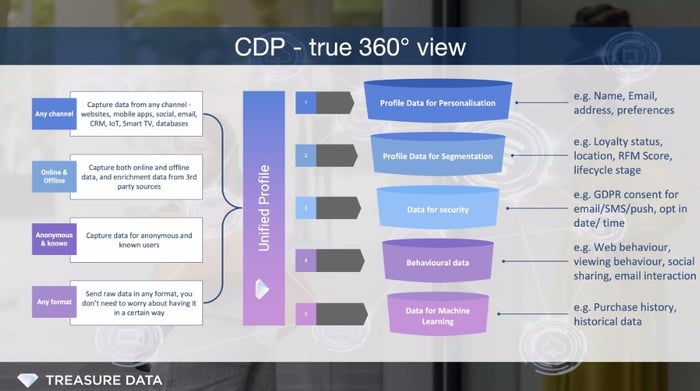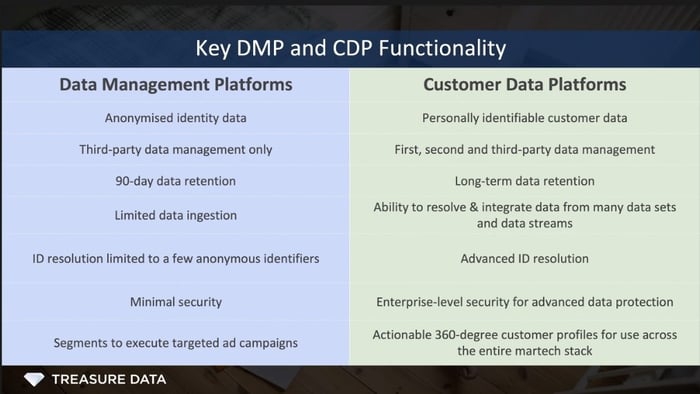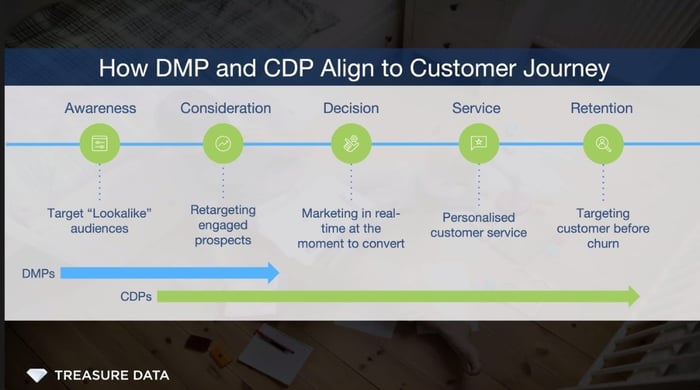You know when a webinar is titled with a question that it's going to be a good one, and this was no exception to the rule.
Here at MarTech Alliance, we were joined by Neill Brookman of TreasureData to talk about the potentially confusing world of CDPs, DMPs and CRMs.
More that that, Neill covered what exactly each one of those solutions does and, depending on what you're trying to do, which one you need or whether you need more than just one.
What are CDPs, DMPs and CRMs?
A CDP is a Customer Data Platform. What this does, very handily, is centralises customer data from all sources and then makes it available to other systems for marketing campaigns.

A DMP, meanwhile, is a Data Management Platform. These enable marketers to use data from various sources in order to manage the customer journey more efficiently.

CRM stands for Customer Relationship Management. With a CRM, you're able to manage interactions with customers and potential customers. These are used to improve customer relationships and streamline processes.
Can you use a CDP and DMP together?
Luckily and rather usefully, you can absolutely use a CDP and a DMP together and for the most part, most offerings work pretty well together.
With that in mind though, Neill explains how if you're starting from scratch, make sure to choose your CDP first on what you need to do, and then pick your DMP based on that first choice.

How about the solutions that claim to cover multiple functionalities?
As Neill says, when offered a solution that tries to do too many things, the phrase "jack of all trades, master of none" comes to mind.
He goes on to justify this by saying that every DMP he's seen that claims to have inbuilt CDPs don't even come close to offering what a standalone CDP offers.
With third party cookies dying, what does that mean for DMPs?
DMPs primarily get their data from third-party cookies, and with them being killed off in the near future, it's looking like DMPs as a whole could fade away.
Once the move away from third-party cookies is made, DMPs will struggle to give you much data, if at all...
So then what?
You need to make sure you drop your own first-party cookies with a CDP. You can then collect data from people on your site yourself, nurture their behaviour, and even retarget them in the future.
A CDP can process real-time data, depending on which one you use, and there's no data risk at all to yourself or customers when employing the use of one, so it really is worth setting yourself up with one of those.
